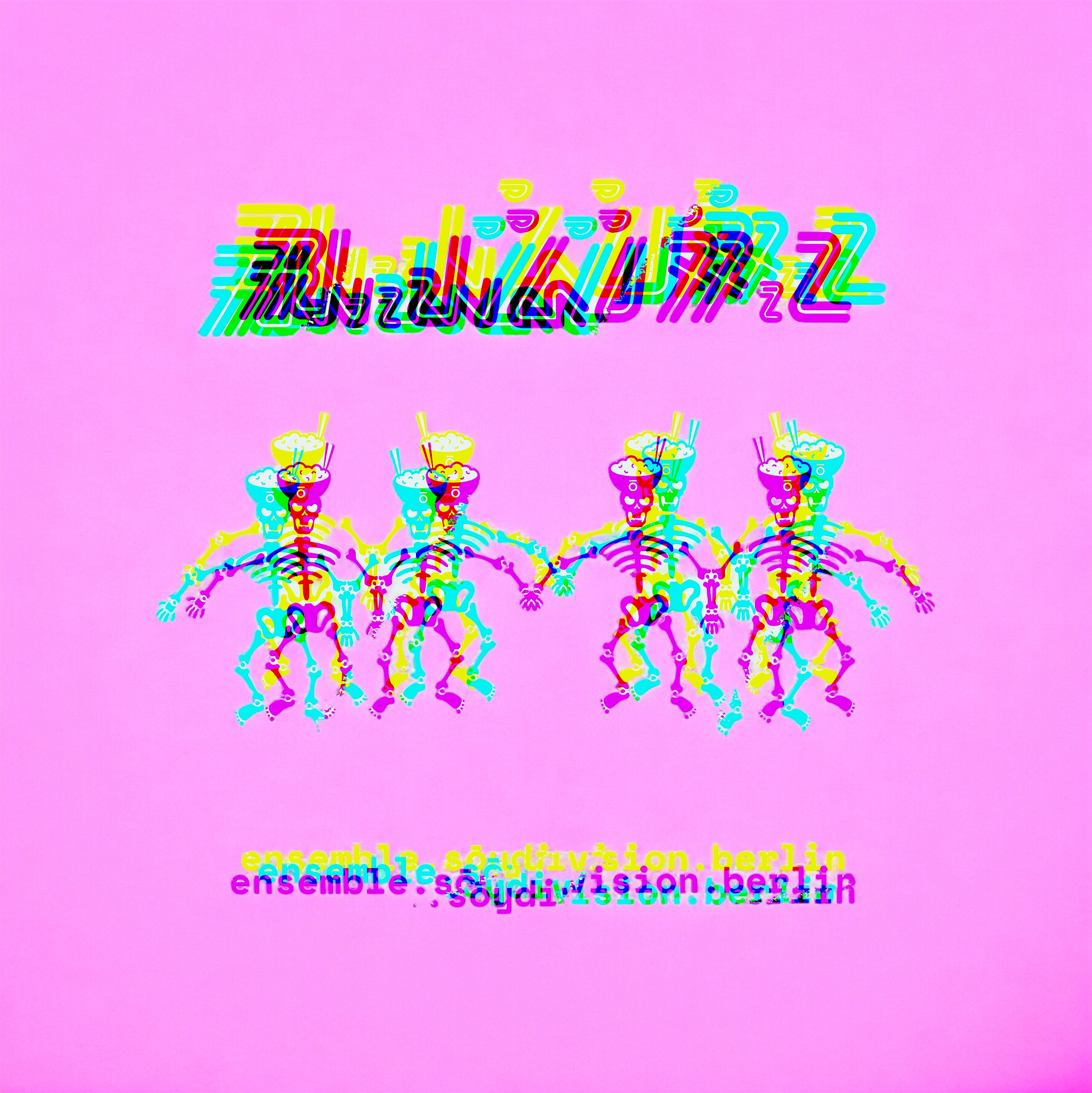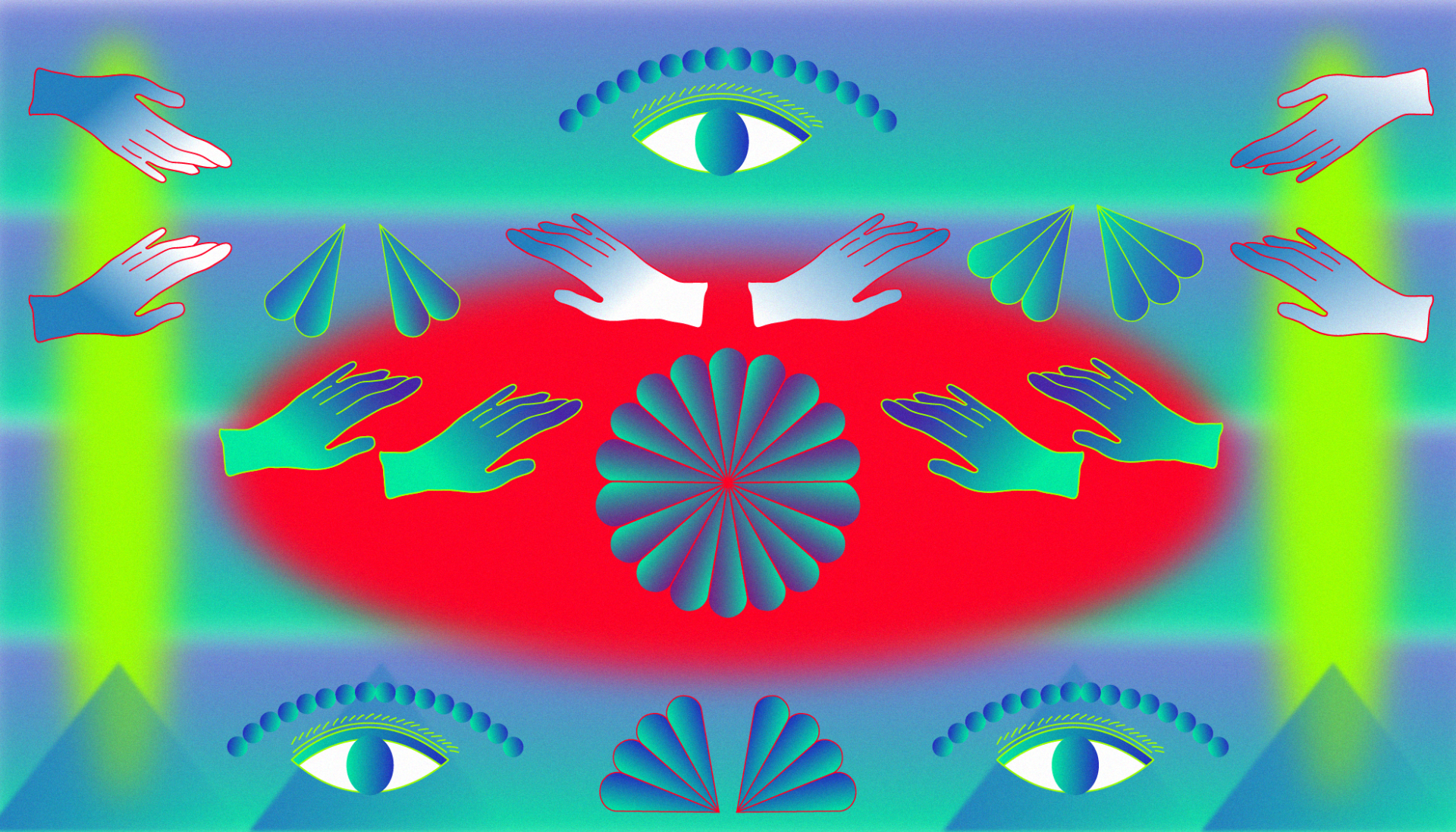STEPPING ON EACH OTHER'S FEET.
Improvisation als PraXis

ZWEITE Aktivierung
26.05.2024 16:00
MIT Sōydivision
FREIER EINTRITT Spenden erwünscht
BESUCH SAVVY ist mit dem Rollstuhl zugänglich
Für die zweite Ausgabe von STEPPING ON EACH OTHER'S FEET: IMPROVISATION AS A PRACTICE freuen wir uns, sōydivision und ihr Projekt Jendela Sonorama, eine gemeinschaftliche Hör- und Vortrags-Performance-Reihe, bei uns zu Gast zu haben.
Jendela Sonorama schlägt vor, Zuhören als eine Form des kollektiven Teilens und Lernens zu betrachten. Ausgehend von den persönlichen Plattensammlungen und Forschungsinteressen der Mitglieder des Kollektivs, aber nicht darauf beschränkt, werden affektive Klanggeschichten ausgepackt, die sich – subtil oder nicht –mit den (oft gewalttätigen) Mitteln, Hinterlassenschaften und Komplexitäten des Kolonialismus befassen.
Wo finden wir den Klang von Grenzidentitäten, von neuen Formen der Existenz? Wie finden wir neue Hörweisen, und wie können wir diese Hörweisen wahrnehmen und bezeugen?
Ziel der Sessions ist es, die Idee einer „nationalen Identität“ zu hinterfragen und einen pluralistischen und vielschichtigen Süd-Süd-Dialog zu etablieren. Diesmal werden wir gemeinsam mit Sōydivision die unmittelbare Umgebung des Stadtteils Wedding unter die Lupe nehmen, um Geschichten, Erinnerungen und Bewegungen in den dynamischen Beziehungen zwischen den verschiedenen Gemeinschaften nachzugehen. Ariel Orah, Pedro Oliveira, Kim Vu und Pisitakun Kuantalaeng laden uns ein, ihren persönlichen Spuren zu folgen und uns zu fragen, was es braucht, um als Ganzes zu harmonieren, unter welchen Bedingungen oder Zwängen und wie wir das Potenzial der Dissonanz nutzen können.
Entwickelt im Jahr 2020 von Ariel Orah und Pedro Oliveira, dieses Mal zusammen mit Kim Vu und Pisitakun Kuantalaeng.
The sōydivision Ensemble is a sub-entity of the Soydivision Collective, an artist group dedicated to the development of experimental theater music. This constellation was formed in 2018 under the direction of Ariel William Orah, following the execution of the collective's inaugural and longest-running showcase series, "Soy&Synth." The core concept behind the ensemble is to translate the composition process of theater music into a dynamic live performance, fostering interactions with various other art forms such as culinary arts, cinema, light installations, wayang (shadow puppetry), radionovela (radio drama), and more. The musical output prominently reflects influences from non-Western music traditions and sound practices, seamlessly blending with contemporary sound techniques such as concrete music, acousmatic music, and experimental electronic music. The element of storytelling holds significant importance for the ensemble, as it serves as a means to initiate dialogues and empathy on themes related to diaspora, identity and activism.
Ariel William Orah is a musician,sound artist, and cultural practitioner. He was born in Bandung, Indonesia and has been living and working in Berlin, Germany for the past 13 years. As part of his artistic practice, Orah works with various sound constellations,media,techniques and formats. After regularly composing music for theater, dance, and film, Orah also began to conceptualize, compose and direct his own experimental theater music pieces. In addition to his work as an artist, he is also active as a curator and artistic researcher, especially in the field of performing art and sound. For the last six years, Orah’s work centered on a collaborative platform and artist group sōydivsion, which he founded in 2017.
Pedro Oliveira is a researcher and sound artist whose work is committed to an anticolonial study of listening and its intersections with violence at the European border. His ongoing research concerns itself with the long histories of technical listening in Germany, its historical, aesthetic, and material articulations, and their culmination as the so-called “dialect recognition technologies,” a proprietary software in use since 2017 in cases of undocumented asylum seekers in the country. He has exhibited and performed work at the Akademie der Künste Berlin, Send/Receive Festival Winnipeg, CTM Festival, Blaues Rauschen Festival, Haus der Kulturen der Welt, Fondazione Merz Torino, Festival Novas Frequências, Akademie Schloss Solitude, the Max-Planck Institute, among others. In his academic practice he has held Fellowships at the Leuphana Institute for Advanced Studies and the Helsinki Collegium for Advanced Studies, and taught at the Humboldt University in Berlin and the Heinrich-Heine University in Düsseldorf. Currently he is a freelance senior lecturer in Sound Studies and Sonic Arts at the Universität der Künste Berlin. He holds a PhD from the Universität der Künste Berlin.
Kim Vu is a Viet-Polish musician based in Berlin. Trained in classical music and guitar, Kim's passion for exploring unconventional sounds led from Euro-centric music education to subcultures like hardcore punk and metal. As Kim's musical interests always expanded, their journey transitioned into engaged collaborations with producers and artists from various fields, resulting in several gigs as a session musician in projects of different genres. Currently Kim is a member in the metal band ‘Graien’. Beyond playing music, Kim is one of the founding members of the Decolonoize Collective. The collective advocates for marginalized voices, challenging systemic issues within the music industry, all while aiming to transform the environment into a more inclusive scene and surroundings.
Pisitakun KuantalaenG Growing up in Thailand’s art scenes during one of the country’s most politically unstable periods, Pisitakun Kuantalaeng kicked off his practice as a visual artist in 2009, essentially focused on political speculations and frustrations. Thailand’s 2010 Red Shirt protests and the government crackdown solidified his approach as a permanent critical thinker and artist.
One of the works that first brought him into the spotlight, “The Unfinished History” initiated in 2012, queries the truth hidden behind political power and conflicted histories by asking who is allowed to write history. The project proposes a re-writing of histories in the form of drawings and comic strips, and includes blank spaces where the public can also add their own interpretations. The work continues to travel and evolve, exploring multiple dimensions of histories by allowing different groups of people to collaboratively create an alternative library of world histories.
Team
Kuration Manuela Garcia Aldana, Kelly Krugman, Ola Zielińska
KonZept Hubert Gromny, Ola Zielińska
Management Lema Sikod
Kommunikation & ÜBERSETZUNG Anna Jäger
Förderung Das Projekt wird durch den Musikfonds gefördert.


